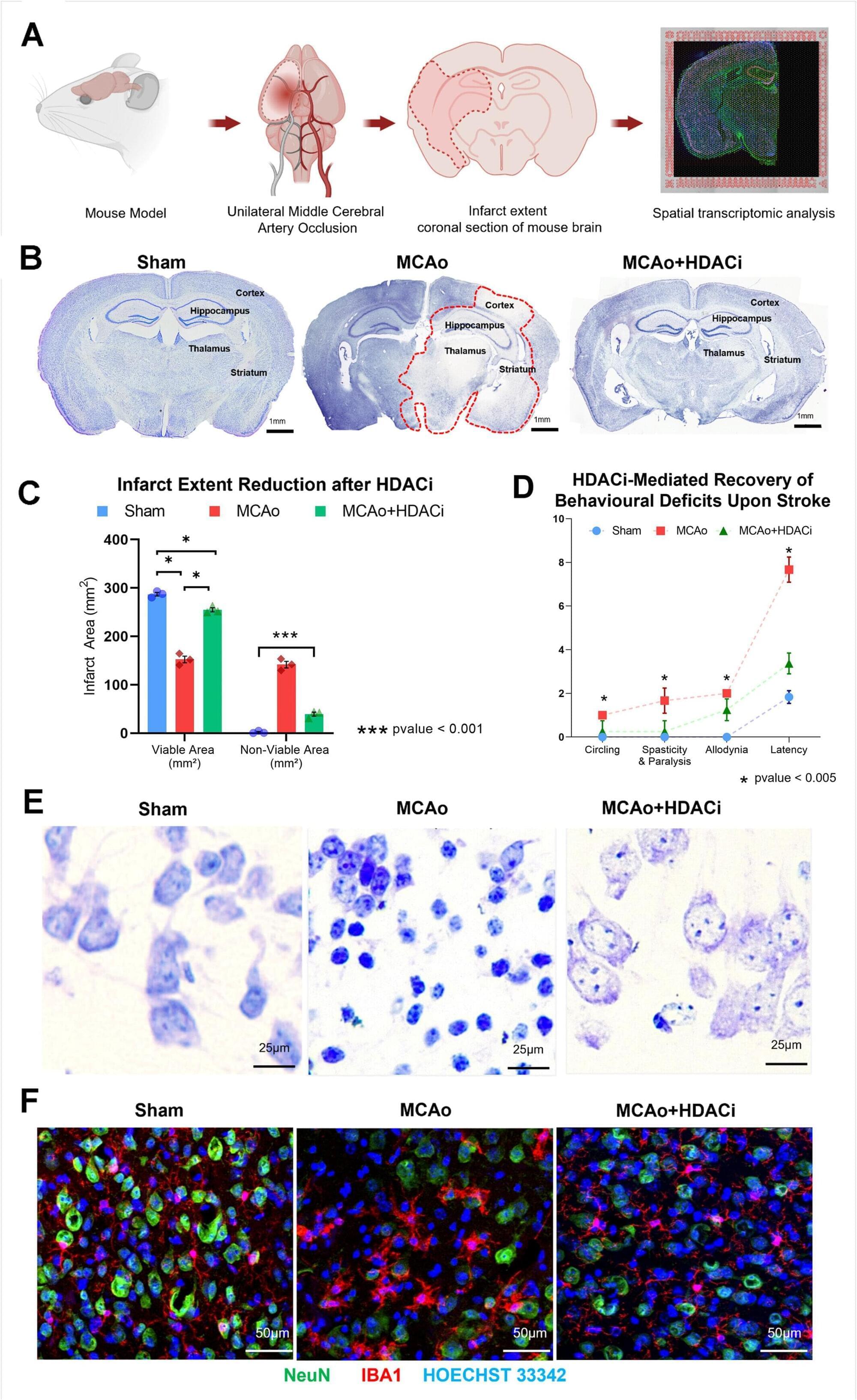Stroke remains one of the leading causes of death, disability, increased economic burden and decreased quality of life around the world. Current stroke therapies are time-limited and largely focused on restoring blood flow, and there are few which address the secondary wave of inflammation that causes further injury in the hours and days after stroke.
A study by researchers from the Yong Loo Lin School of Medicine, National University of Singapore (NUS Medicine), has shown that a class of drugs, HDACi (histone deacetylase inhibitors), protects neurons and limits brain damage following stroke by altering the gene expression of microglia, the immune cells of the brain.
HDACi are currently used or being tested as treatments for certain cancers and are also being researched for neurological conditions such as Alzheimer’s disease.
